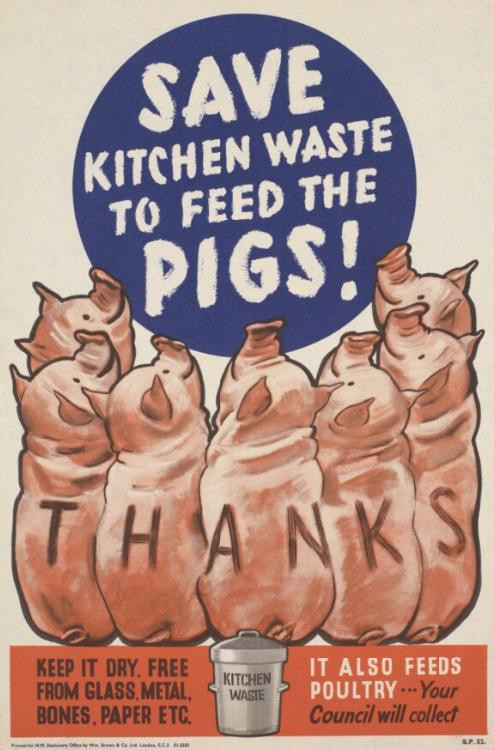Lifting pigswill ban would save 1.8 million hectares of land

Around 1.8 million hectares of land could be saved if the European Union reintroduces food waste into the diet of pigs, say researchers from the University of Cambridge. The study, published in Food Policy, found that an area more than double the size of the UK's largest county, North Yorkshire, could be saved.
Pigswill – leftover kitchen scraps that are given to pigs as feed – was banned in 2002, but the researchers believe the ban should be lifted.
The European Union banned pig feed following the 2001 foot-and-mouth outbreak, which saw 3.8 million animals slaughtered. However, East Asian countries didn't ban pigswill, they just put in place stricter regulations to make the food safe. The researchers believe this was the best approach.
"Following the foot-and-mouth disease outbreak, different countries looked at the same situation, the same evidence, and came to opposite conclusions for policy," said Erasmus zu Ermgassen, lead author of the study. "In many countries in East Asia we have a working model for the safe use of food waste as pig feed. It is a highly regulated and closely monitored system that recycles food waste and produces low-cost pig feed with a low environmental impact."
It was found that 21.5% of all land used in the EU for the pork industry would be saved, should the ban on pigswill be lifted. It is also much cheaper than grain and soybean-based pig feed, so costs could be reduced by up to 50% for farmers.

They came to their conclusion by analysing data surrounding the amount of land used for the EU pork industry, the availability of food waste in the EU and both the quality and quantity of pork produced following both types of feeding pattern – using pigswill and normal grain. The research team then produced a model to show how much land could be saved if pigswill was reintroduced to the EU.
"Pigs are omnivorous animals; in the wild they would eat anything they could forage for, from vegetable matter to other animal carcasses, and they have been fed food waste since they were domesticated by humans 10,000 years ago," said zu Ermgassen. "Swill actually provides a more traditional diet for pigs than the grain-based feed currently used in modern EU systems."
Livestock production accounts for nearly 75% of agricultural land globally. Demand for meat and dairy products is expected to increase 60% by 2050.
© Copyright IBTimes 2025. All rights reserved.






















